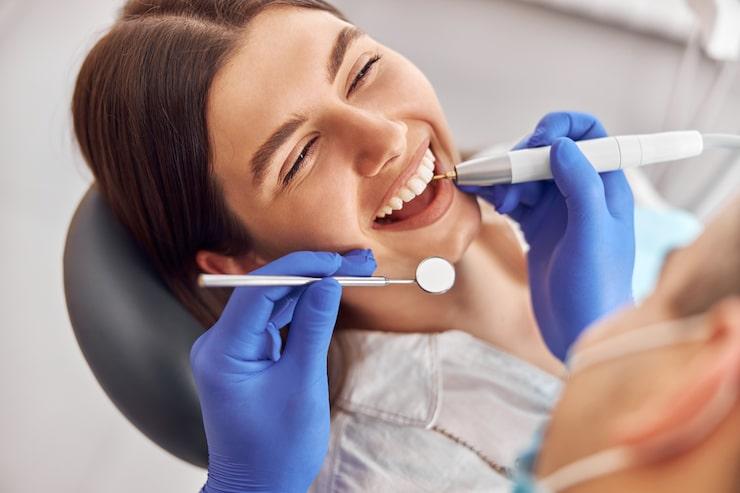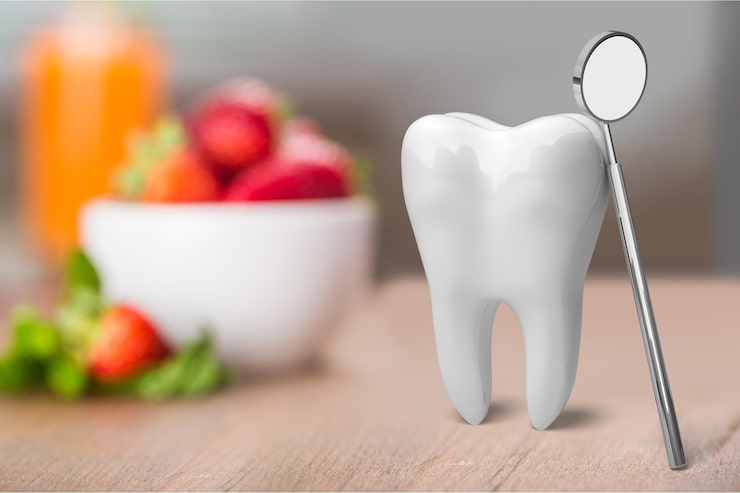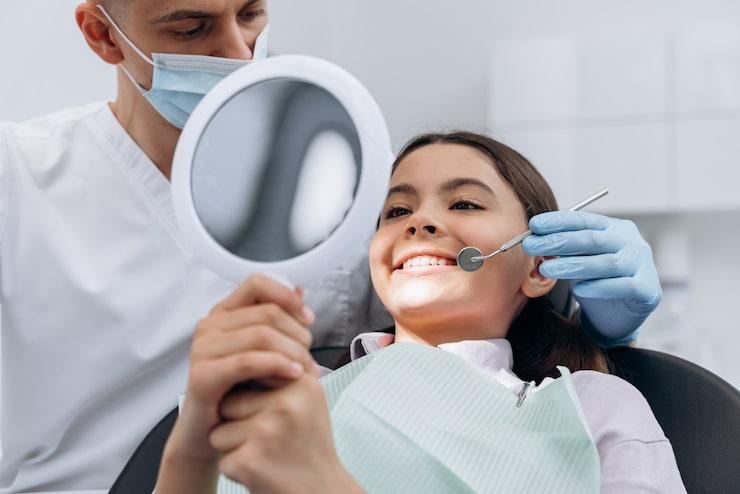
Regular dental visits keep your teeth healthy
A healthy grin is more than simply a pretty face; it shows how healthy you are generally. If you have good oral health, you can eat, talk, and live without pain or suffering. On the other side, not taking care of your teeth can cause cavities, gum disease, poor breath, and even make serious health problems like heart disease and diabetes worse.
Luckily, it's not hard to keep your teeth healthy. You can keep your teeth and gums healthy for life if you take care of them and follow good habits. In this blog post, we'll talk about 10 important things you can do to maintain your teeth healthy, why they matter, and how to do them every day.
Brushing is the most important part of keeping your mouth clean. It gets rid of plaque, food particles, and bacteria, which are the sticky film that causes tooth decay and gum disease.
How to wash your teeth well:
You can't brush every part of your mouth. Cavities often form between teeth, where tiny bits of food and debris can get stuck. Flossing gets rid of food particles and lowers the risk of gum disease.
How to use floss the right way:
If traditional flossing is hard for you, water flossers or interdental brushes might work just as well.
Your oral health is greatly affected by what you consume. Eating a lot of sweets and acidic meals can wear down enamel and create cavities. On the other hand, meals that are high in nutrients make teeth and gums stronger.
Foods that are good for your teeth:
Limit these foods:
Drinks with sugar and acid are some of the worst things for your teeth. Bacteria in the mouth eat sugar and make acids that hurt tooth enamel. This causes sensitivity and cavities over time.
Ways to cut down on damage:
Even if your teeth feel fine, you should go to the dentist regularly. Many dental disorders, such as cavities and gum disease, don't hurt until they're bad. Dentists can see problems early on and stop small ones from becoming big ones.
What to expect at check-ups:
Experts say you should see the dentist every six months, but your dentist may tell you to come in more often if you need to.

Anatomical model of a healthy tooth
You can get hurt when playing sports, working out, or simply doing everyday things. Keeping your teeth safe from trauma stops damage that hurts and costs a lot of money.
Using tobacco is one of the worst things you can do for your mouth. It makes your teeth look bad, gives you poor breath, and raises your chances of getting gum disease and oral cancer. People who smoke are also more prone to lose teeth than people who don't smoke.
Not only can quitting smoking improve your oral health, it also helps your heart, lungs, and overall health. If quitting is hard for you, get help from a counselor, nicotine replacement, or medicine.
Fluoride is a mineral that occurs naturally and makes enamel stronger, which helps teeth resist decay. Fluoride is in most toothpastes, and in many places, drinking water is also fluoridated.
Ways to add fluoride:
But don't give young children too much fluoride, as it can cause their teeth to change color somewhat (fluorosis). Always watch kids while they brush.
Some kids and adults grind or clench their teeth without even realizing it, especially while they sleep. Bruxism is the term of this condition. It can wear down enamel, hurt your jaw, and give you headaches.
Bruxism signs:
Good habits learned early on lead to healthy teeth. Tell kids to take care of their teeth the same way they take care of their toys and homework.
Advice for parents:

A girl getting her teeth examined by a dentist to maintain her oral health
Oral health is intimately linked to overall health. Not brushing and flossing your teeth properly can let bacteria into your bloodstream, which can lead to problems like
Taking care of your mouth isn't just about your teeth; it's also about keeping your whole body safe.
Taking care of your teeth regularly is what keeps them healthy, not quick cures. You can keep your teeth and gums healthy for life by brushing and flossing every day, eating the appropriate foods, cutting back on sugar, and going to the dentist on a regular basis. Adding behaviors that safeguard you, such wearing mouthguards, not smoking, and controlling grinding, makes you even safer.
A bright smile is not only a symbol of confidence; it also means you are healthy. Your teeth will remain strong, functional, and beautiful for years to come if you take little actions every day. For any other queries, contact the expert doctors at Prakash Hospital, Noida.
We offer expert care across key specialties, including Medicine, Cardiology, Orthopaedics, ENT, Gynaecology, and more—delivering trusted treatment under one roof.
Prakash Hospital Pvt. Ltd. is a 100 bedded NABH NABL accredited multispecialty hospital along with a center of trauma and orthopedics. We are in the service of society since 2001.
OUR SPECIALITIES
Contact Us
D – 12A, 12B, Sector-33, G. B. Nagar, Noida, Uttar Pradesh 201301
+91-8826000033

© 2026 All rights reserved.
Designed and Developed by Zarle Infotech